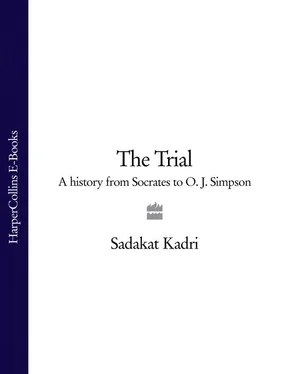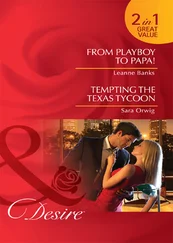The hearings were rituals of condemnation rather than inquiry, and only a handful of acquittals ever occurred – but the insistence on public articulation meant that even the most careful preparations could suddenly go awry. When William Parry appeared at Westminster Hall in 1585 to answer charges of attempting to assassinate Elizabeth, he wearily entered a guilty plea and declared that, ‘I desire not life, but desire to die’. But the court was packed with Londoners anxious to see Parry get his comeuppance, and instead of moving directly to sentence his judges ordered that his confession be read aloud, ‘that everyone may see that the matter is as bad as the Indictment purporteth’. As Parry heard his words repeated, steel returned to his broken frame. ‘Your Honours know…how my confession was extorted,’ he declared. They fired back that torture had not been used. It had been threatened, he retorted. Charge and counter-charge spiralled, until Parry was denying any intention to kill the queen at all and promising to ‘lay his blood’ amongst the judges if they condemned him to death. The rattled men of the bench, warning him against such ‘dark speeches’, ordered that he be hanged, drawn, and quartered. A process that would have remained behind closed doors on the continent ended with the defendant being pulled down the riverside steps past a hooting mob, demanding ‘in his rage and passion’ that Elizabeth be summonsed ‘to answer for my blood before God’.
No trial better illustrated the unpredictable force of publicity than one that occurred under the reign of Elizabeth’s successor, King James I, in November 1603: the prosecution for treason of Sir Walter Raleigh. Drama was virtually guaranteed from the outset. Until Elizabeth’s death in March 1603, Raleigh had enjoyed a charmed existence. Tall and elegant, he had shimmered like a peacock in a court where looks had mattered. After sponsoring England’s first American colony at Roanoke in 1585, he had introduced Elizabeth’s entourage to the pleasures of tobacco, and done more than any man alive to popularize the potato. Most heroic of all were his exploits against Spain, whose fleet he had taken on in battle three times. As England had flexed its maritime muscles he had trespassed even further into the heart of Spanish darkness, returning from one voyage in 1595 with tales of a land called Guyana where the natives’ heads grew beneath their shoulders and precious metals veined every rock. El Dorado, he had reported, was just a return trip away.
All the derring-do came with an arrogance that lost friends as easily as it won them, however. Even Elizabeth sent Raleigh to the doghouse for several years when he breached palace protocol by impregnating one of her maids of honour, and the fastidious James took against him almost instantly. Though unequivocally Protestant, the king was always more concerned to steady his wobbly throne than to fight the old religion, and was as underwhelmed by Raleigh’s anti-Spanish credentials as he was unimpressed by his fondness for tobacco. Within months of James assuming the throne, the monopolies, patents, and privileges dispensed by Elizabeth were suspended and Raleigh had lost his grace-and-favour mansion. Although inconvenient, it seemed no more than a routine shake-up – until in the summer, one of Raleigh’s closest friends, Lord Henry Cobham, was implicated in a Catholic plot to overthrow the king. No evidence linked Raleigh to the conspiracy, but he too found himself under arrest in mid July on suspicion of treason. The rogue of the old dispensation was about to turn into the whipping boy of the new.
In November 1603, with a plague epidemic claiming two thousand lives a week in London, the entire court decamped to the ancient city of Winchester for the trials. The city traced its history back to Rome and its mythology back to Camelot, but this was the grandest show that it had seen in a long while. Scholars were thrown out of their cathedral lodgings to accommodate the jurists, James set up field headquarters at a nearby mansion, and carriages laden with judges, jurors, lawyers, and defendants were soon streaming through its gates. Raleigh took up residence at the castle dungeon on 15 November, and arrived to the news that several of the Catholics charged with conspiring against James had just been tried, and that all but one had been sentenced to death. Although Raleigh’s own interrogators had never sought to link him to a broader plot, it was not a good sign.
Early in the morning of 17 November Raleigh was escorted by pikewielding guards down to the Bishop’s Palace, and led into its sepulchral courtroom. His plummeting fortunes had been entertaining the country for months, and popular interest in his anticipated destruction was immense. On the five-day journey from London, his carriage had been received with abuse, rocks and showers of clay pipes throughout (inspiring Raleigh laconically to observe that ‘dogs do always bark at those they know not’), and the pillars, bays, and benches were now filled. Aristocrats and commoners sat cheek to cheek, exhaling large clouds of tobacco smoke if other trials of the time are a guide, as they waited for the show to begin. Almost all would have been hoping to see the final act of an epic life.
All seemed set fair to sink Raleigh. A phalanx of eleven royal commissioners, all of whom had helped investigate the plot against James, sat at the front of the court, four wearing the scarlet robes and black cornercaps of high judicial office. Local legend tells that the king himself was concealed in a cubbyhole, his ear to a listening hole, and although unlikely (because James had specifically sent reporters to court) it would not have been out of character; he secretly eavesdropped at many other major trials that occured during his reign. And at the prosecution benches, flanked by his fellow lawyers, was the most feared advocate of the day: Attorney-General Sir Edward Coke.
The lawyer, in his early fifties like Raleigh, was in many ways the mirror image of his adversary. Equally imposing physically and no less confident personally, he epitomized just as Raleigh did a social type that was emerging for the first time in England: the self-made man. Each was born into a comfortable but non-aristocratic family; and although they had frequented different types of court, both had clambered up the hierarchy with a judicious combination of back-stabbing, fawning, and charm. Like many Elizabethans on the make, both were also masterful rhetoricians. In a fluid society where a commoner could no longer become a monk but could be appointed Attorney-General or mount a search for El Dorado if he sounded convincing enough, the ability to persuade was becoming an essential skill. Raleigh was a talented poet and writer while Coke, though always more likely to censor England’s theatres than to attend them, had an eloquence renowned even among contemporaries who were rarely tongue-tied. Elizabethan schoolboys were taught adoxography, the art of eruditely praising worthless things. * Coke mastered a converse skill – and with his words, he sent scores of men careening to their deaths.
The power was one that he exercised with pleasure. When the Earl of Essex told his treason jury in 1600 that Coke was ‘play[ing] the orator’ and displaying ‘the trade and talent of those who value themselves upon their skill in pleading innocent men out of their lives’, the remarks contained the soupçon of an aristocratic sneer. But the trade and talent of the commoner from Norwich Grammar School was enough to persuade twelve peers to despatch Essex to the chopping block, and Coke would only have taken the complaint as a compliment. For he prosecuted with a passion that went beyond the call of professional duty. It was a quality exemplified in his verbal duel with Raleigh, which has good claim to be the most abusive courtroom battle in England’s history.
Читать дальше




![Theresa Cheung - The Dream Dictionary from A to Z [Revised edition] - The Ultimate A–Z to Interpret the Secrets of Your Dreams](/books/692092/theresa-cheung-the-dream-dictionary-from-a-to-z-r-thumb.webp)







